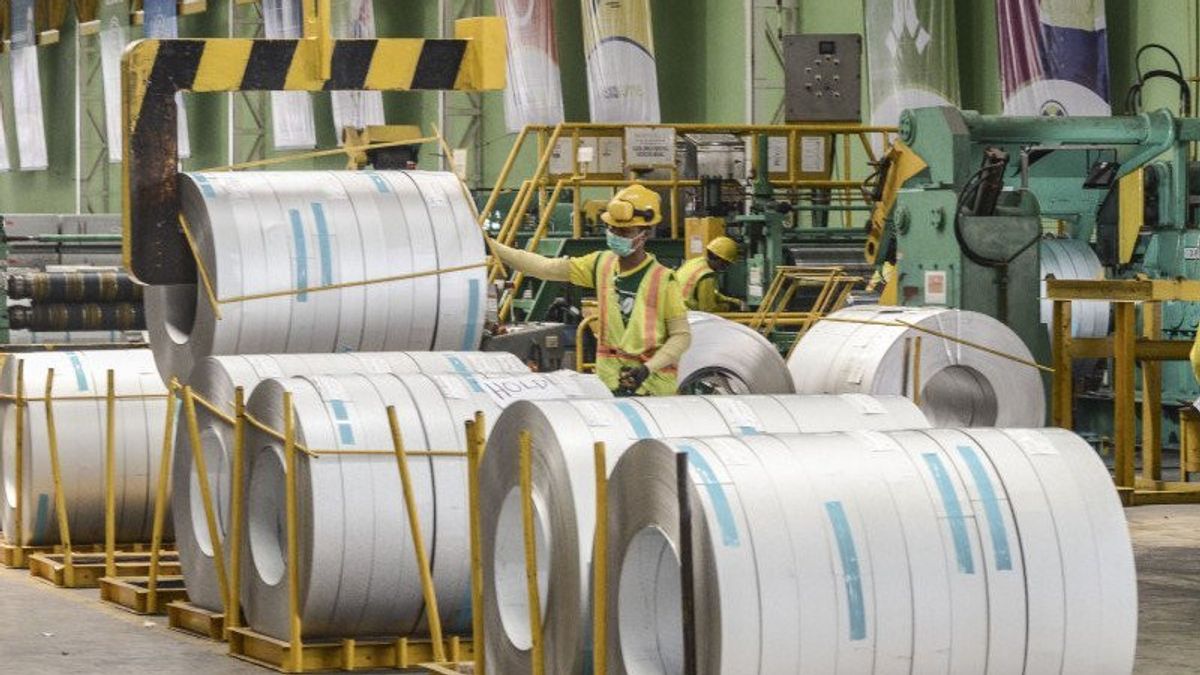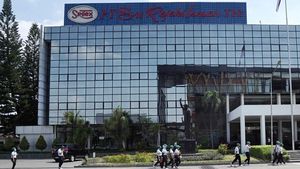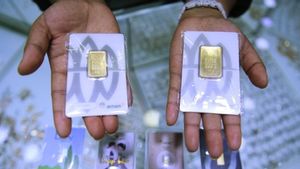JAKARTA - Head of the Trade Policy Agency (BKPerdag) of the Ministry of Trade Kasan said that business actors in the Indonesian iron and steel sector need to anticipate the implementation of a carbon border adjustment mechanism (CBAM).
CBAM is the reduction of carbon emissions by increasing tariffs or import duties on goods imported into the European Union (EU).
The CBAM will come into effect in 2026 for five main products, including iron and steel as one of Indonesia's leading products in the EU market.
"The implementation of CBAM is a challenge for Indonesia in international trade, especially in the iron and steel sector. With early anticipation, it is hoped that iron and steel as a potential product of Indonesia will continue to grow in exports, both in the EU market and other markets in the world by considering the issue of reducing carbon emissions," he said in an official statement, Thursday, August 25.
The implementation of CBAM will begin in 2023-2025 by reporting the amount of emissions contained in the product without paying the carbon tax.
Meanwhile, starting in 2026, full tax payments will be made.
In the first phase, Kasan said, the types of products applied by CBAM are aluminum, iron and steel, cement, fertilizer, and electrical energy.
"In the second phase, it will potentially be developed for other products that are suspected of producing carbon emissions from the EU and non-EU," he said.
In 2019 and 2020, Kasan said, China, Russia and Turkey are the biggest suppliers to the EU for iron and steel products, cement, electrical energy, fertilizers and aluminium. These three countries will be the most affected by CBAM.
Indonesia is Projected to Experience a Decline in Steel Exports
Kasan said, Indonesia was ranked 51st as the country of origin for imports of EU CBAM products in 2020.
Iron and steel products have the highest export share compared to the other four products.
In 2019, the share of Indonesia's iron and steel exports to the EU was recorded at 10.7 percent of the total share of Indonesia's iron and steel exports to the world.
However, Kasan said, this percentage will decline in 2020 with an export share of 7.9 percent of Indonesia's total iron and steel exports to the world.
"Along with efforts to increase Indonesia's exports, especially iron and steel to EU countries, it is necessary to identify trade barriers, both tariff and non-tariff, including CBAM. Indonesia is projected to experience a decline in Indonesian iron and steel exports related to the implementation of CBAM by countries EU," he said.
VOIR éGALEMENT:
Because of that, Kasan said, the Ministry of Trade had sent a strong protest to the European Commission through a letter from the Minister of Trade on January 14, 2022.
"The Ministry of Trade is committed to continuing to support market access for products from Indonesia to leading partner countries. One of them is by providing business actors with an overview of the impact of CBAM on the iron and steel industry," Kasan concluded.
The English, Chinese, Japanese, Arabic, and French versions are automatically generated by the AI. So there may still be inaccuracies in translating, please always see Indonesian as our main language. (system supported by DigitalSiber.id)
















